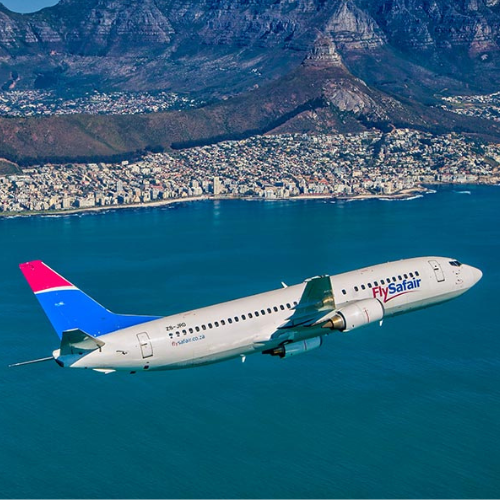South African budget airline FlySafair, known for affordable flights, is under pressure after South Africa’s International Air Services Licensing Council (IASC) found it in violation of foreign ownership laws. The council stated that Irish company ASL Aviation Group holds a 74.86% stake in the airline, well above the allowed limit. Now, FlySafair faces potential sanctions from regulators who are charged with ensuring that local airlines are majority-owned by South Africans.
These ownership restrictions are in place to keep control of airlines within South Africa, preventing foreign entities from having too much influence. With FlySafair’s competitors, like Airlink and Global Aviation, also filing complaints, the airline is under intense scrutiny to address the council’s findings.
What the Airline’s Ownership Structure Violates
South African law mandates that airlines must be predominantly owned by South Africans. Two main regulations cover this — the Air Services Act for domestic airlines and the International Air Services Act for international ones.
The Air Services Act, governing local operations, requires 75% South African ownership. The International Air Services Act, governing international operations, does not specify an exact percentage but requires “substantial” local ownership and “active” and “effective” South African control. According to the IASC, the airline’s ownership structure does not meet these criteria.
The council discovered that ASL Aviation Group effectively owns 74.86% of the airline, structured in two parts: 49.86% through an entity called Safair Investment Trust and an additional 25% owned directly by ASL. The council claims that this setup allows ASL to exercise control beyond the legal limit.
FlySafair’s Response to the Allegations
The IASC’s investigation into the airline began after it applied for an ownership amendment in October 2022. This led regulators to review its ownership, eventually leading to formal complaints from competitors Airlink and Global Aviation in early 2024. These competitors argued that FlySafair was operating in violation of South African ownership rules, prompting the council to take a closer look.
U.S. Cracks Down: Turkish Man’s Bold Venezuelan Oil Sanctions Evasion Exposed
In response, FlySafair issued a statement affirming its commitment to compliance with local laws. The airline’s leadership expressed confidence in its ownership structure, which it believes complies with both the “letter and spirit of the law.” According to FlySafair, Irish control is “three tiers removed” from the airline’s day-to-day operations, which it believes aligns with legal requirements. The company emphasized that it takes governance seriously and is awaiting further communication from the IASC regarding the specific sanctions it might face.
FlySafair also points to legal support that asserts its structure aligns with local regulations and relevant court rulings. Nonetheless, the council disagrees and plans to announce specific sanctions by November 28, 2024. As the airline prepares for potential penalties, it continues engaging with the IASC to seek clarification.
Competitor Complaints and Pending Investigations
FlySafair is not the only South African airline with complex ownership, though it has faced particularly intense scrutiny. Competitors such as Airlink and Global Aviation have voiced concerns, requesting stricter regulatory action. Airlink, which recently sold a 25% stake to Qatar Airways, declined to comment on FlySafair’s situation, likely waiting for the council’s final decision. Global Aviation, another complainant, has also withheld comments, observing the regulatory developments.
In addition to the IASC’s investigation, FlySafair is under review by the Air Services Licensing Council (ASLC), which oversees domestic operations. If the ASLC finds that it violated domestic ownership rules, this could bring more challenges.
During the council’s investigation, FlySafair provided a breakdown of its ownership: 49.86% owned by Safair Investment Trust (linked to ASL Aviation), 25% owned directly by an ASL-owned company, and 25.14% held by a South African employee-owned entity. The council believes this setup doesn’t satisfy the country’s requirement for “effective” local control.
The situation highlights the difficulties that airlines face in balancing foreign investment with South Africa’s aim to keep control local. The council’s final decision will illustrate how strictly these rules are enforced, especially as FlySafair and other South African airlines navigate similar ownership structures.
With its ownership now under intense review, FlySafair awaits the council’s decision as it works to maintain compliance and continue operating in South Africa’s skies.


